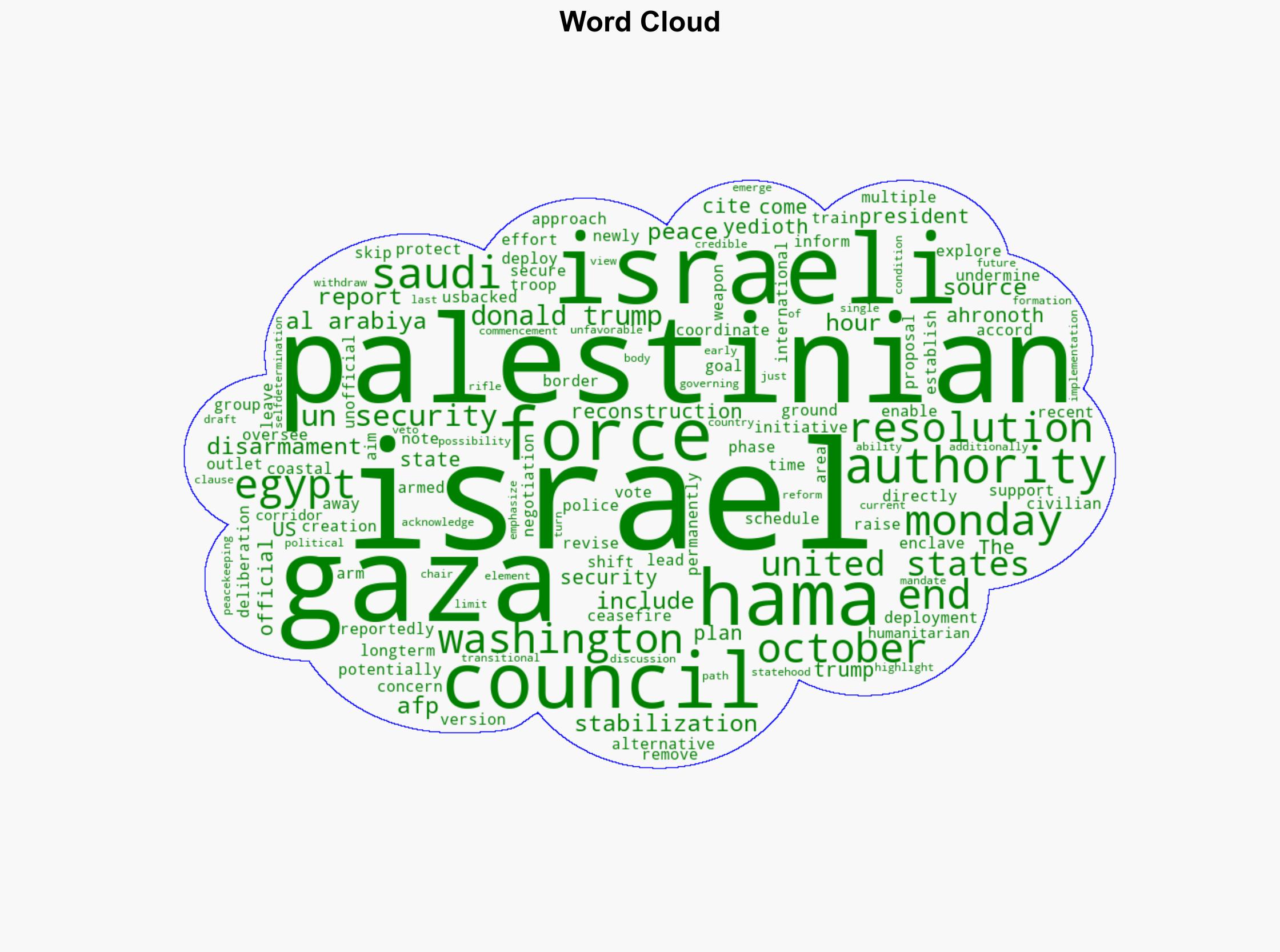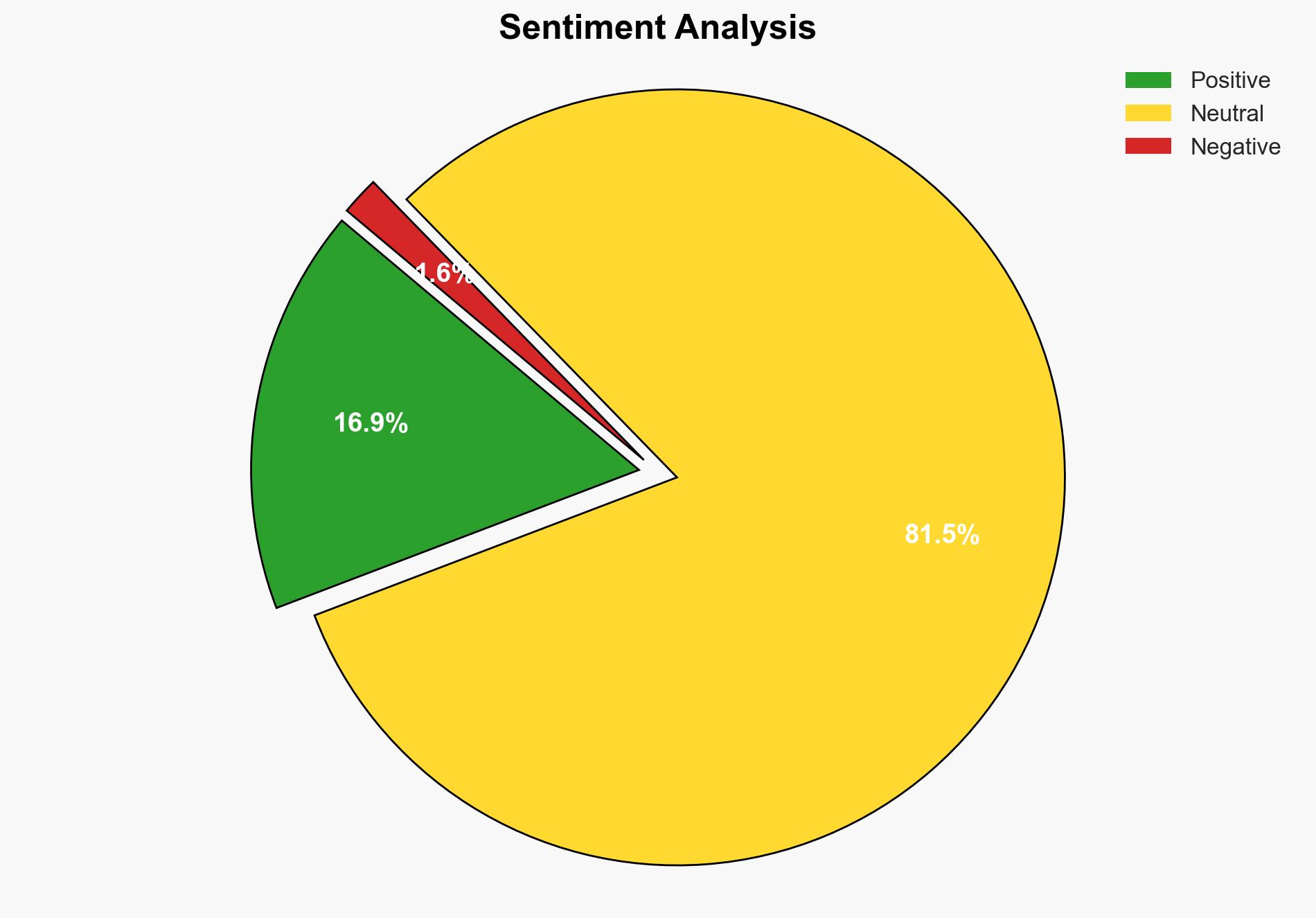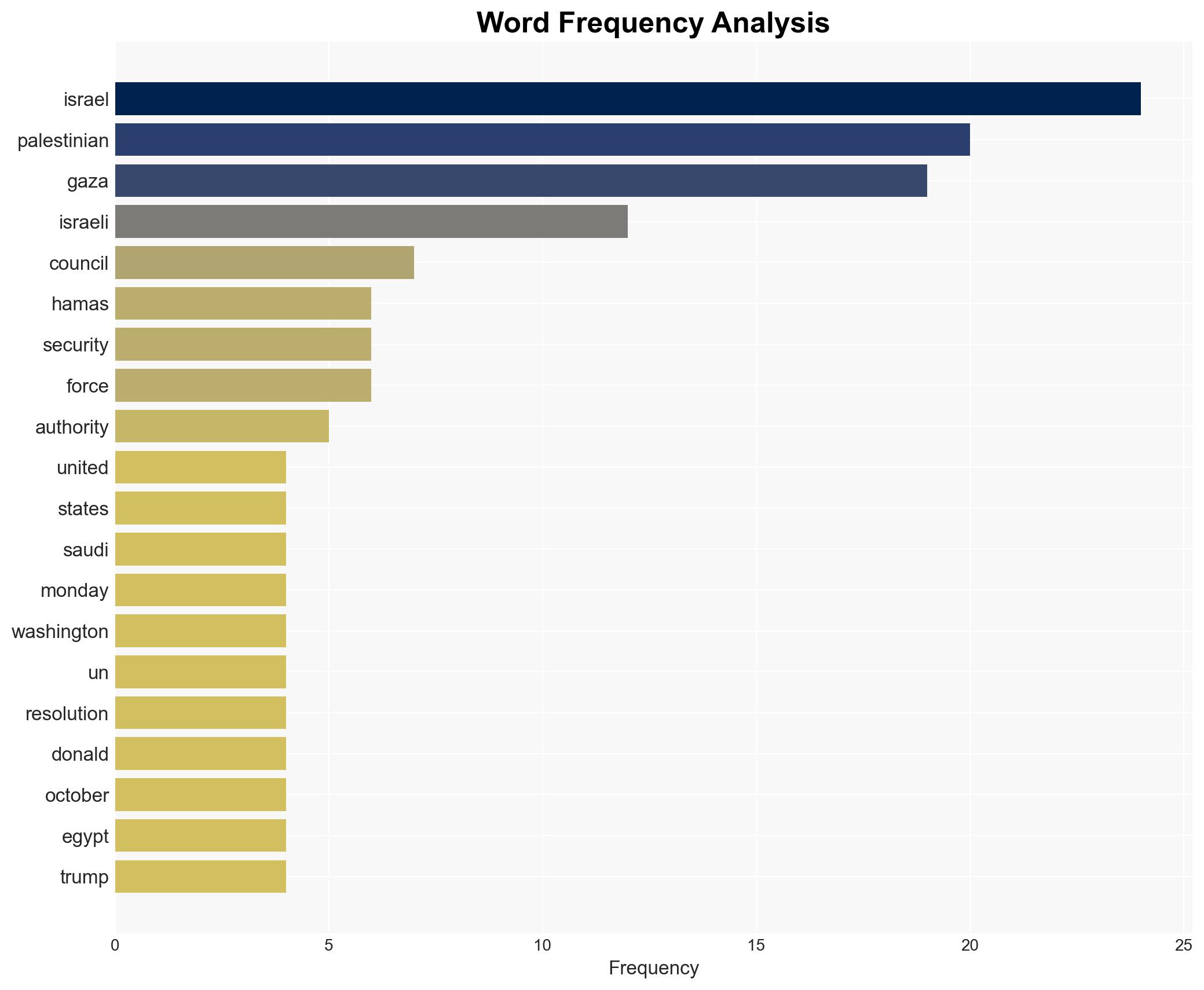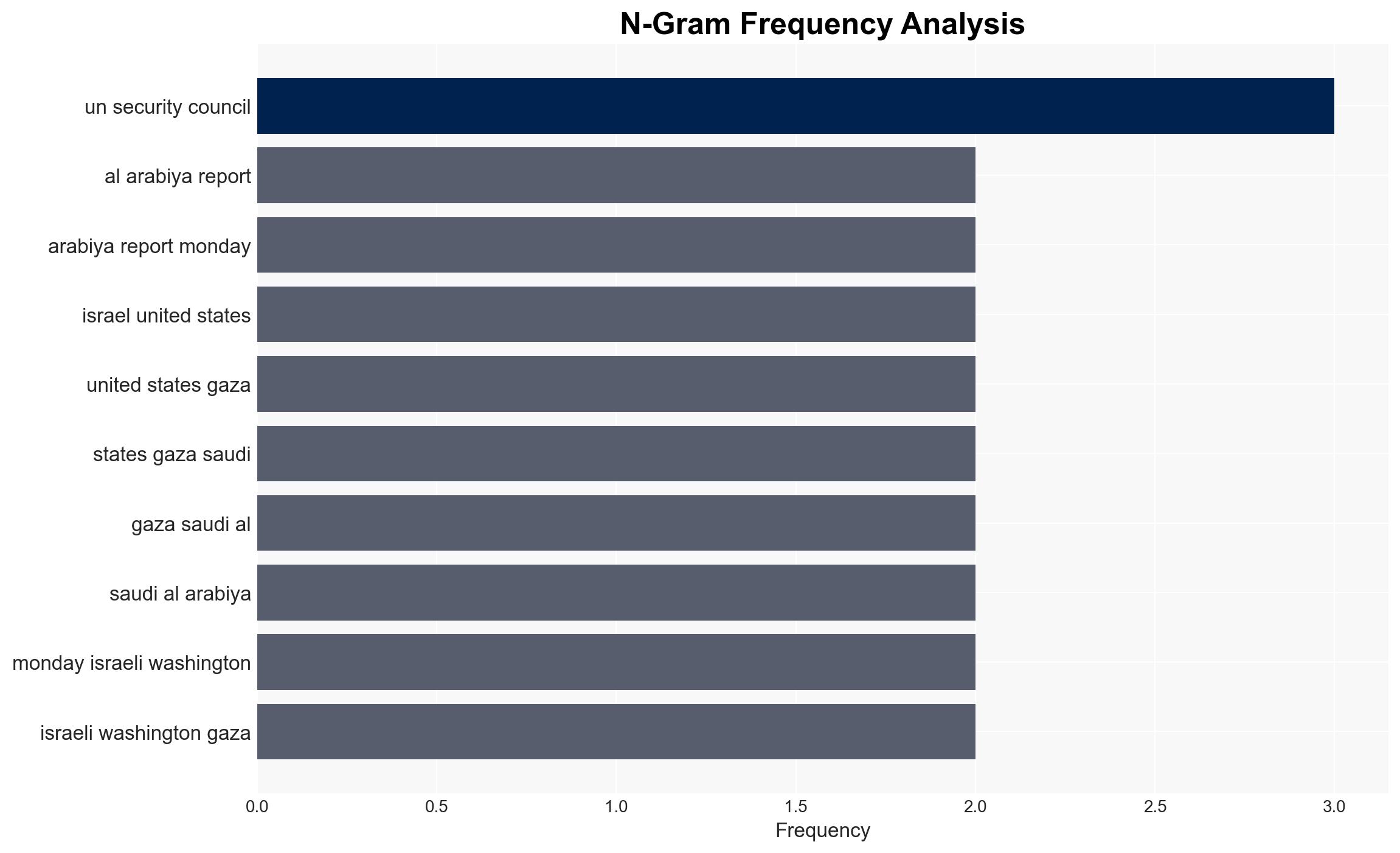Report US rethinks disarming Hamas in Gaza – Israelnationalnews.com
Published on: 2025-11-17
AI-powered OSINT brief from verified open sources. Automated NLP signal extraction with human verification. See our Methodology and Why WorldWideWatchers.
Intelligence Report:
1. BLUF (Bottom Line Up Front)
The United States is reportedly considering bypassing the disarmament phase in Gaza and moving directly to reconstruction efforts. This shift could potentially leave Hamas armed, raising security concerns for Israel. The most supported hypothesis is that this decision aims to expedite stabilization and reconstruction, but it risks undermining long-term security goals. Confidence Level: Moderate. Recommended action includes diplomatic engagement with regional stakeholders to ensure security concerns are addressed while facilitating reconstruction.
2. Competing Hypotheses
Hypothesis 1: The US decision to skip disarmament is a strategic move to accelerate reconstruction and stabilize Gaza, potentially gaining political leverage and regional support.
Hypothesis 2: The US is prioritizing reconstruction due to logistical and political challenges associated with disarmament, potentially leaving Hamas armed and undermining security.
Hypothesis 1 is more likely given the context of international diplomatic efforts and the urgency to stabilize the region. However, the lack of disarmament poses significant security risks.
3. Key Assumptions and Red Flags
Assumptions: The US believes reconstruction will lead to stabilization. Regional stakeholders will support the revised approach.
Red Flags: Potential Israeli opposition to leaving Hamas armed. Risk of miscommunication or misalignment with regional partners.
Deception Indicators: Possible misinformation from sources with vested interests in shaping US policy.
4. Implications and Strategic Risks
The decision to bypass disarmament could lead to increased tensions between Israel and the US, potentially straining diplomatic relations. There is a risk of escalation if Hamas remains armed, potentially leading to renewed conflict. Economically, the reconstruction could stimulate local economies but may also be hindered by security concerns. Information warfare risks include propaganda from opposing factions exploiting the situation.
5. Recommendations and Outlook
- Engage diplomatically with Israel and regional partners to address security concerns while facilitating reconstruction.
- Establish monitoring mechanisms to ensure reconstruction efforts do not empower armed groups.
- Best-case scenario: Successful reconstruction leads to stabilization and improved US influence in the region.
- Worst-case scenario: Armed conflict resumes due to security lapses, undermining regional stability.
- Most-likely scenario: Reconstruction progresses with intermittent security challenges, requiring ongoing diplomatic efforts.
6. Key Individuals and Entities
Donald Trump (former US President), Israeli security officials, Palestinian Authority representatives.
7. Thematic Tags
Counter-Terrorism, Middle East Stability, US Foreign Policy, Israeli-Palestinian Conflict
Structured Analytic Techniques Applied
- ACH 2.0: Reconstruct likely threat actor intentions via hypothesis testing and structured refutation.
- Indicators Development: Track radicalization signals and propaganda patterns to anticipate operational planning.
- Narrative Pattern Analysis: Analyze spread/adaptation of ideological narratives for recruitment/incitement signals.
Explore more:
Counter-Terrorism Briefs ·
Daily Summary ·
Support us
·





